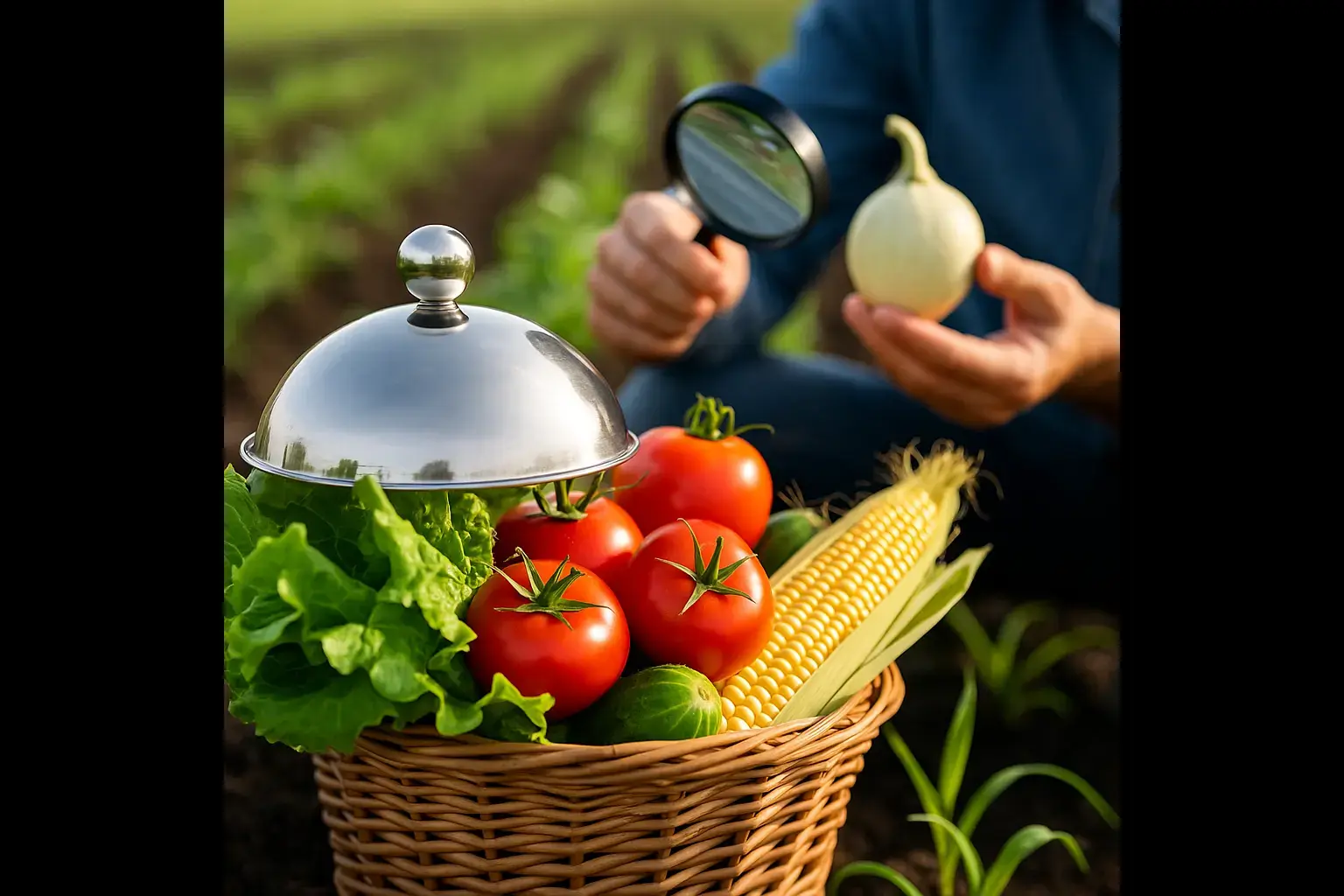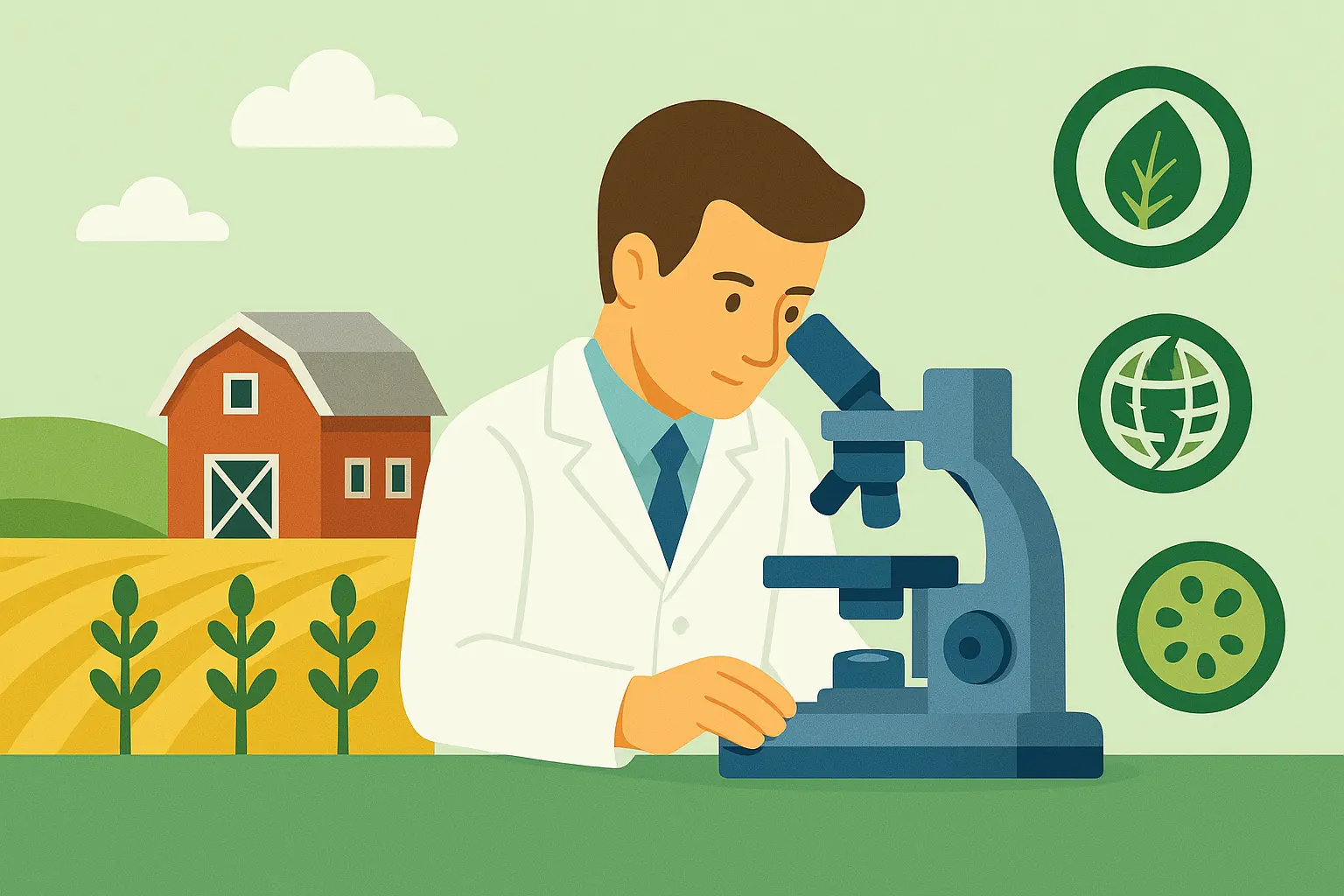In today’s food supply chain, safety and quality are more important than ever. Consumers want to know that their food is healthy, safe, and free from harmful substances. For agri businesses, this means ensuring products meet strict food safety standards.
One of the best ways to do that is through lab testing — a scientific process that checks food for chemicals, bacteria, and nutrition. Investing in agri lab testing is not a luxury anymore; it’s a necessity. Whether you’re a farmer, food processor, or exporter, lab testing ensures that your food meets regulatory norms and builds consumer trust.
What Is Food Lab Testing?
Food lab testing is the process of analyzing agricultural produce and food items to ensure they are safe for consumption. These tests detect:
- Pesticide residues
- Heavy metals (like lead, mercury, arsenic)
- Harmful microbes (like Salmonella, E. coli)
- Adulterants and contaminants
- Nutritional values (protein, fat, vitamins, etc.)
Lab testing helps agri businesses comply with food laws and avoid health risks to consumers.
Why Food Safety Matters in Agriculture

Indian agriculture is evolving. With rising exports, changing consumer preferences, and stricter regulations from FSSAI and global bodies, agri businesses must ensure:
- Products are safe and clean
- Food labels are accurate
- Contaminants are within legal limits
- No banned substances are used
Without food safety checks, businesses risk rejections, penalties, and reputational loss.
Key Benefits of Lab Testing for Agri Businesses
1. Regulatory Compliance
India’s food safety authority (FSSAI) requires regular testing for many agri-based products. For exporters, tests are often mandatory under EU, USFDA, and Codex standards. Without test certificates, products can be stopped at customs or returned.
2. Customer Trust and Transparency
Lab-tested food is easier to sell. When buyers and consumers see certifications like “Tested Safe” or “FSSAI Compliant,” it builds confidence. This is especially important for brands selling organic or health-focused products.
3. Better Market Access
Retail chains, institutional buyers, and global importers prefer suppliers with tested and verified goods. Lab reports open doors to:
- Export markets
- Large-scale buyers
- Online grocery platforms
4. Improved Product Quality
Testing helps agri producers understand what’s working and what’s not. For example, a soil test might show excess lead; a pesticide residue test may detect chemical overuse. This lets farmers adjust practices early and avoid crop rejection.
When and What Should You Test?
Food testing is not just for finished products. It can be done at multiple stages:
- Soil testing (before planting)
- Residue testing (during harvesting)
- Microbiological and chemical testing (during processing)
- Nutritional and shelf-life analysis (before packaging)
Common tests include:
- Pesticide residue
- Heavy metals
- Bacterial count
- Shelf-life estimation
- Nutritional profile
- Adulteration check
What Happens If You Don’t Test?
Skipping lab testing may save money short-term, but the risks are high:
- Rejected consignments (especially exports)
- Product recalls or FSSAI bans
- Fines for non-compliance
- Negative media coverage
- Consumer distrust and loss of repeat business
The cost of not testing is much higher than the cost of testing.
In-House vs. Third-Party Testing: What’s Better?
While large corporations may have in-house labs, most agri businesses use third-party food labs. This is more affordable and convenient.
Why Choose a Certified Lab?
- NABL or FSSAI accreditation
- Accurate and timely results
- Recognized by exporters and government bodies
- No capital cost or lab maintenance
STAR Labs by StarAgri
STAR Labs is an advanced food and agri testing service offered by StarAgri, a trusted name in India’s Agritech space. With a focus on safety, compliance, and transparency, STAR Labs helps farmers, food processors, and exporters ensure that their products are tested, certified, and ready for market.
STAR Labs offers:
- Soil and residue testing
- Pesticide and chemical analysis
- Microbial and adulteration detection
- Nutritional testing for labeling compliance
- Export-ready certification support
Whether you’re exporting spices, growing vegetables, or running a food unit — STAR Labs provides reliable results with expert support.
Why Choose StarAgri?
At StarAgri, a leading leading integrated Agritech solutions company we are dedicated to building a safe, transparent, and sustainable agricultural ecosystem. Through our wide range of services including warehousing, logistics, quality assurance, and market access, we empower over a million Indian farmers and agri businesses to operate more efficiently and competitively.
Our Star Labs division is fully equipped with modern testing instruments and accredited experts to guide you through regulatory compliance, food safety standards, and global certifications.
Serving across India — including Rajasthan, Maharashtra, Gujarat, Madhya Pradesh, and beyond.
Conclusion
Food safety isn’t optional — it’s the foundation of trust. Lab testing helps agri businesses deliver safe, certified, and high-quality products to both Indian and international markets. With services like Star Labs by StarAgri, reliable testing is more accessible than ever.
If you’re serious about scaling your agri business, start with safety. Start with testing.
Disclaimer
The content published on this blog is provided solely for informational and educational purposes and is not intended as professional or legal advice. While we strive to ensure the accuracy and reliability of the information presented, StarAgri make no representations or warranties of any kind, express or implied, about the completeness, accuracy, suitability, or availability with respect to the blog content or the information, products, services, or related graphics contained in the blog for any purpose. Any reliance you place on such information is therefore strictly at your own risk. Readers are encouraged to consult qualified agricultural experts, agronomists, or relevant professionals before making any decisions based on the information provided herein. StarAgri, its authors, contributors, and affiliates shall not be held liable for any loss or damage, including without limitation, indirect or consequential loss or damage, or any loss or damage whatsoever arising from reliance on information contained in this blog. Through this blog, you may be able to link to other websites that are not under the control of StarAgri. We have no control over the nature, content, and availability of those sites and inclusion of any links does not necessarily imply a recommendation or endorsement of the views expressed within them. We reserve the right to modify, update, or remove blog content at any time without prior notice.



